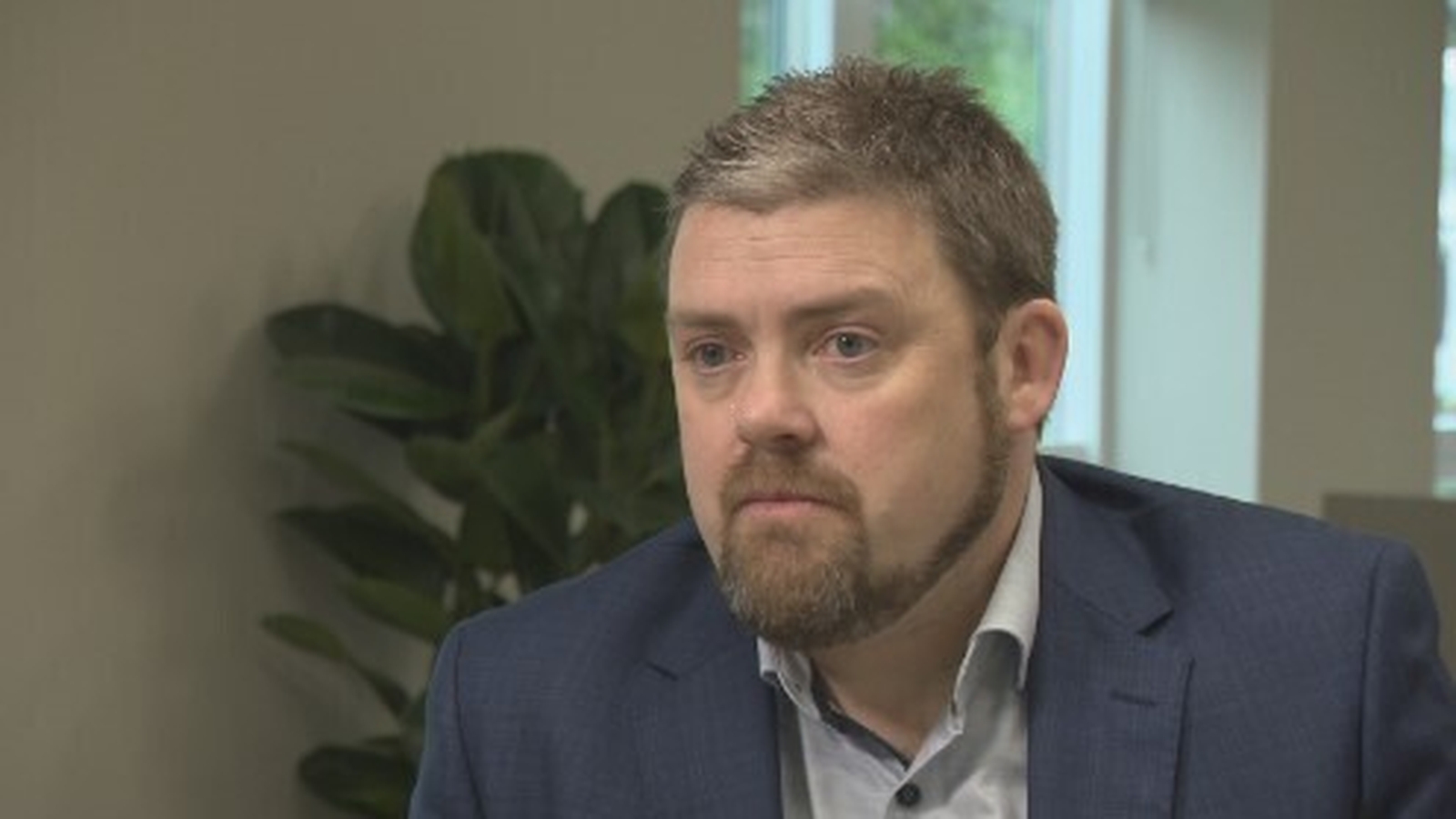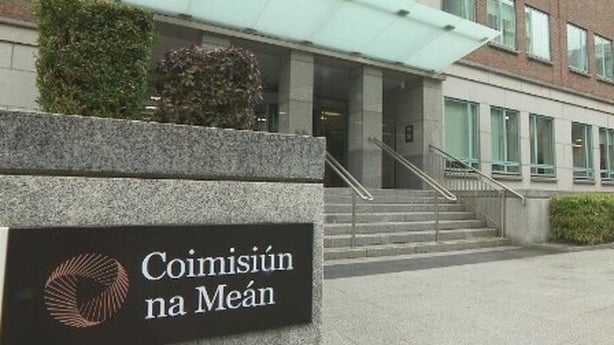‘A bit of a cliff edge’

The man charged with overseeing Ireland’s implementation of new EU online safety rules has said they are “looking at a little bit of cliff edge,” when it comes to dealing with complaints from the public about disinformation and illegal content.
However, he said his office will have sufficient resources to tackle the problems.
Digital Services Commissioner John Evans is a senior official with the media regulator, Coimisiún na Meán, which has been tasked with enforcing the EU’s Digital Services Act (DSA) in Ireland.
From tomorrow, Ireland will take up its role under the DSA.
The new rules will see online platforms, including major social media companies, being required to do more when it comes to removing harmful content and tackling the spread of disinformation.
Because so many of the big tech firms have their European Headquarters in Ireland, Mr Evans’s office will also have a role in dealing with complaints from other countries.
“We don’t know what’s coming exactly,” he told RTÉ News.
“We could get quite a number of complaints and because we are the channel for complaints coming from other member states as well, this is another kind of level of uncertainty that we’ve been dealing with,” he said.

Companies face fines of up to 6% of global turnover for violating DSA rules and could be banned from doing business in the EU for repeated breaches.
New contact centre
To assist in managing and considering complaints, from Monday, Coimisiún na Meán will operate a contact centre for members of the public.
“We’re well geared up for it. We have a contact centre, we have quite a large number of agents trained and ready to go, and we have our divisional structures for matters that get escalated,” Mr Evans said.
“Our website and call centre are not just about providing a channel for complaints, they are also about providing customers with information about how they can deal with objectionable content.”
“We’re using the tagline ‘spot it, flag it, stop it'” he added, “so that customers and citizens can spot objectionable content and flag it with the platforms allowing them to stop it and take it down,” he said.
Mr Evans said his view is that the powers conferred to his office are sufficient.
“We will be able to open up investigations and impose fines of 6% of turnover which is really quite significant, especially given the revenues associated with some of the very large platforms,” Mr Evans added.
Election disinformation
Coimisiún na Meán is not the only agency in the State tasked with considering disinformation and misinformation.
However, there are concerns about whether the authorities have been provided with the necessary powers and resources to sufficiently deal with the issue, which is a growing concern for governments and organisations across Europe.
Last month, the Electoral Commission said it had some but not all of the tools to deal with misinformation in the campaigns for the forthcoming Family and Care referendums on 8 March.
Commission Chief Executive Art O’Leary said it is engaging with social media companies but that it is highly unlikely that powers to regulate the spread of false claims will be in place before the electorate votes.
The Electoral Reform Act establishing the Electoral Commission was passed by the Oireachtas last year but sections giving it powers to regulate political advertising and combat disinformation have not yet been commenced, following concerns raised by the European Commission and objections from social media companies.
Asked about how he plans to deal with any problems relating to forthcoming votes, Mr Evans said his initial approach will be to raise the issue with the platforms.
Although Coimisiún na Meán did not have its full powers at the time, it did engage with social media platforms over the Dublin riots in November 2023.
“They were quite forthcoming in meeting us and giving us information. So far, the relationship is good and I look forward to working with them,” Mr Evans said.
“We would have close relations with the Garda Siochana, the Competition and Consumer Protection Commission and I’m sure with the Electoral Commission, now that it’s getting up and running.”
“We don’t always need to go straight to our hard powers,” he said.
“We will have supervisors that are in a sense ‘man-marking’ the major platforms and we will have open lines of communication.”
“We can also bring along the European Commission, as we did for example at the time of the Dublin riots, and when we have the European Commission with us that tends to focus minds.”
Ireland at the ‘spear-tip’ of EU rules
Of the 22 large platforms and search engines designated by the European Commission under the DSA, 13 of them have their European Headquarters in Ireland.
These include internet giants such as Facebook and Instagram parent Meta, TikTok, X and Google.
“There is a Digital Services Coordinator (DSC) in each member state but obviously we have a particularly important part in that network because so many of the big ones are based here,” Mr Evans said.
“Let’s say a customer in France raises an issue, it is intended that they would contact their local DSC who would then do an assessment of the issue and transmit it to us.”
The European Commission has set up an information-sharing system that allows complaints to travel around the network of DSCs.
“We’re expecting quite a big workload but the European Commission also has a role here,” Mr Evans said.
“We’re really at the spear-tip of this in Europe,” he added.
Just how sharp and effective that spear will be, when it comes to policing the online world, will become clear over the coming weeks and months as Ireland takes its place at the forefront of a new era of internet regulation.





